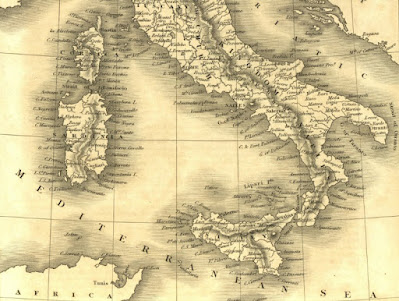The Greek Language of Calabria
Discover a language spoken for centuries by Hellenic people of the Southern Italian region of Calabria.
What is Calabrian Greek?
Calabrian Greek (or Greko, as we call it) is the language that has been spoken for centuries by Greko people in the Calabria region of Southern Italy.
Although now confined to be spoken in a handful of towns and villages in the mountainous region of Aspromonte, it was once spoken by a large portion of the Calabrian population, before gradually being abandoned, due to socio-economic reasons, for the local romance varieties spoken nowaday in the area.
Why is it worth it to keep it alive?
Calabrian Greek is our ancestral language, spoken (someone believes uninterruptedly) since the 7th century BC, when, following the Greek diaspora, the Greeks from the motherland migrated westward and settled in Southern Italy. Calabrian Greek is very much part of the cultural heritage of all Calabrians, whether they speak the language or not.
Indeed, although Greko itself is spoken fluently by very few people nowaday, it is still alive in the local romance dialects we speak, through loanwords and syntactic calques.We have a saying that goes like: “i christianì plateggu greka ce den to sceru”, which translates to “the people in our region speak Greko, they just don’t realize it”.
Why is it dying?
The Greko-speaking area has been shrinking for almost a millennium, under the pressure of Latin first (after the Roman conquest of Southern Italy), of the romance dialects also spoken in the region later, and lately (mostly from the 1950’s onwards) due to the spread of Italian.
Calabrian Greek is partially mutually intelligible with Standard Modern Greek, as both evolved independently from Medieval Greek after the end of the Byzantine empire’s rule over southern Italy (around the year 1100 AD) with little to no contact between these two populations ever since. We have a sister language called Griko, with a similar history, which is spoken in the Apulia region of Southern Italy.
Calabrian Greek has miraculously survived in the innermost and most inaccessible valleys of Aspromonte, in villages and hamlets inhabited by shepherds and farmers who kept speaking the language of their forefathers, regardless of the fact that all the other villages around them had switched to the romance dialect.
The fact that Greko was spoken by shepherds and farmers contributed to stigmatizing this “strange, foreign” language that was spoken only by the lower classes, but has preserved to the present day a rich vocabulary for plants and animals (we have more than 50 different words to describe goats!).
Greko is also key to understanding the landscape we inhabit, as a lot of toponyms are of Greek origin, and it is crucial for us to learn how to interpret our own toponyms and to, in a sense, reclaim them and take back ownership of the narrative about our land and our people.
As an example, the name of our famous mountain range, the Aspromonte, if analyzed through the lenses of a speaker of Italian translates roughly to something like “rugged mountain”, with a tinge of harshness and barrenness. And indeed this is how much of the national media depict our mountains. Instead, if you look at the toponym Aspromonte through the lenses of Calabrian Greek, then you realize it could also be a mix of Greko and Latin (a bit like us!) and it stands for the “white mountain”. It’s not barren, it’s simply covered in snow!
The story featured may in some cases have been created by an independent third party and may not always represent the views of the institutions, listed below, who have supplied the content.







Σχόλια